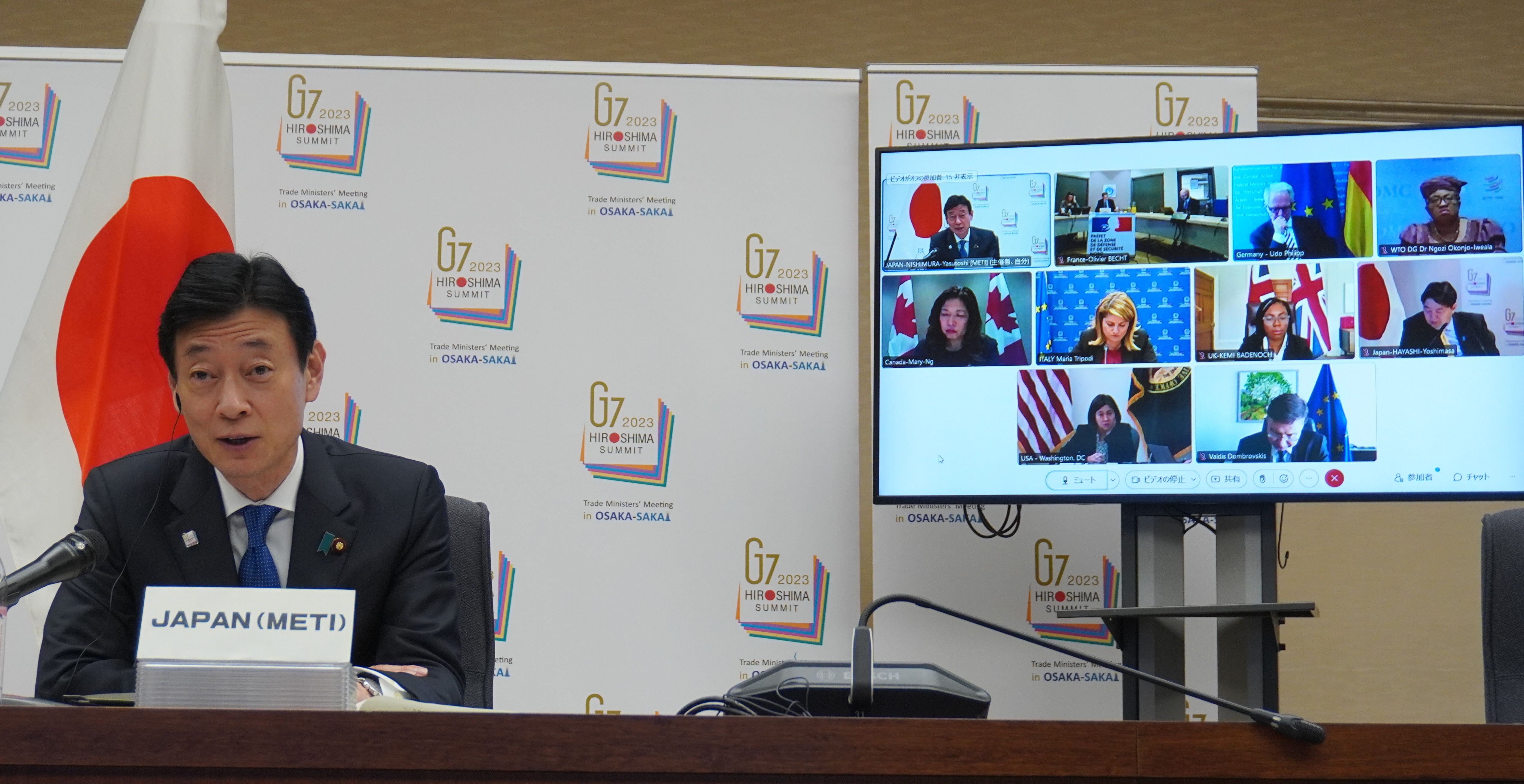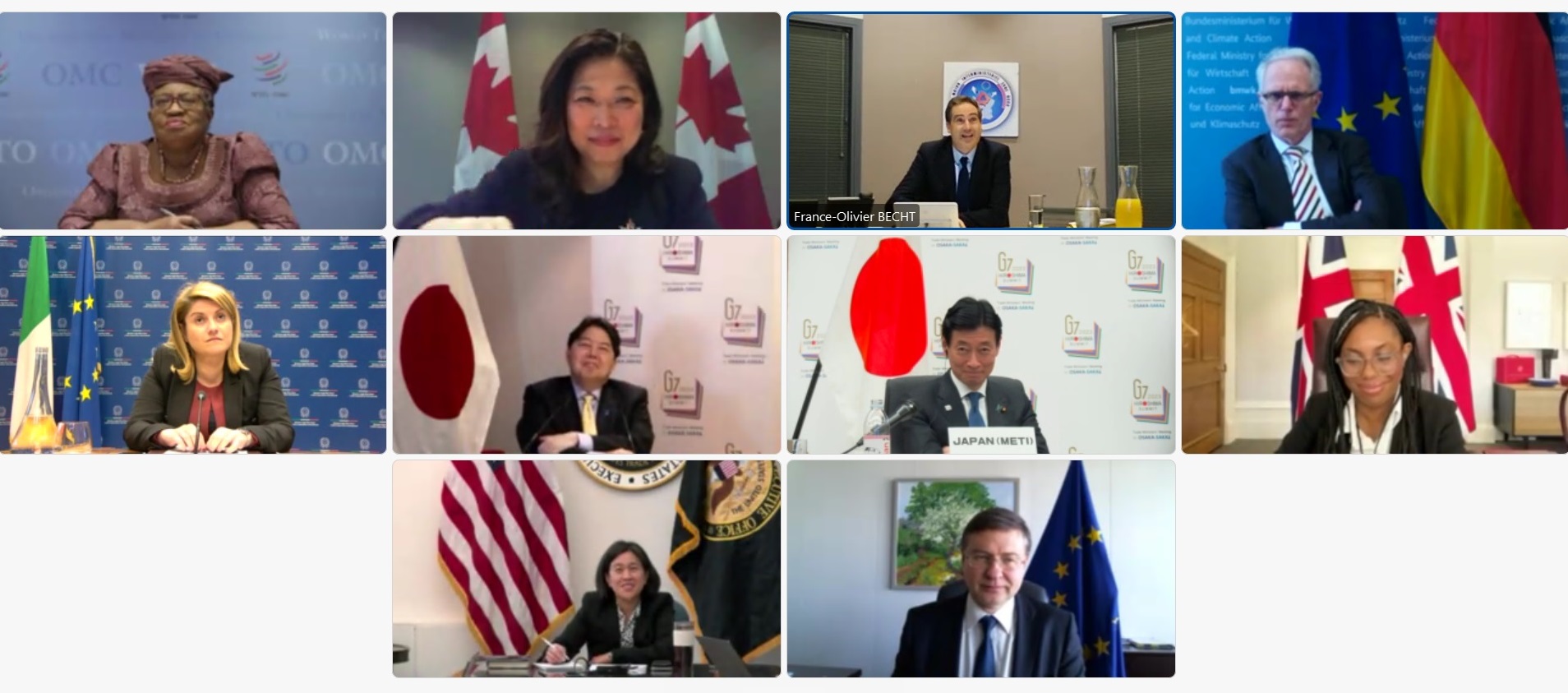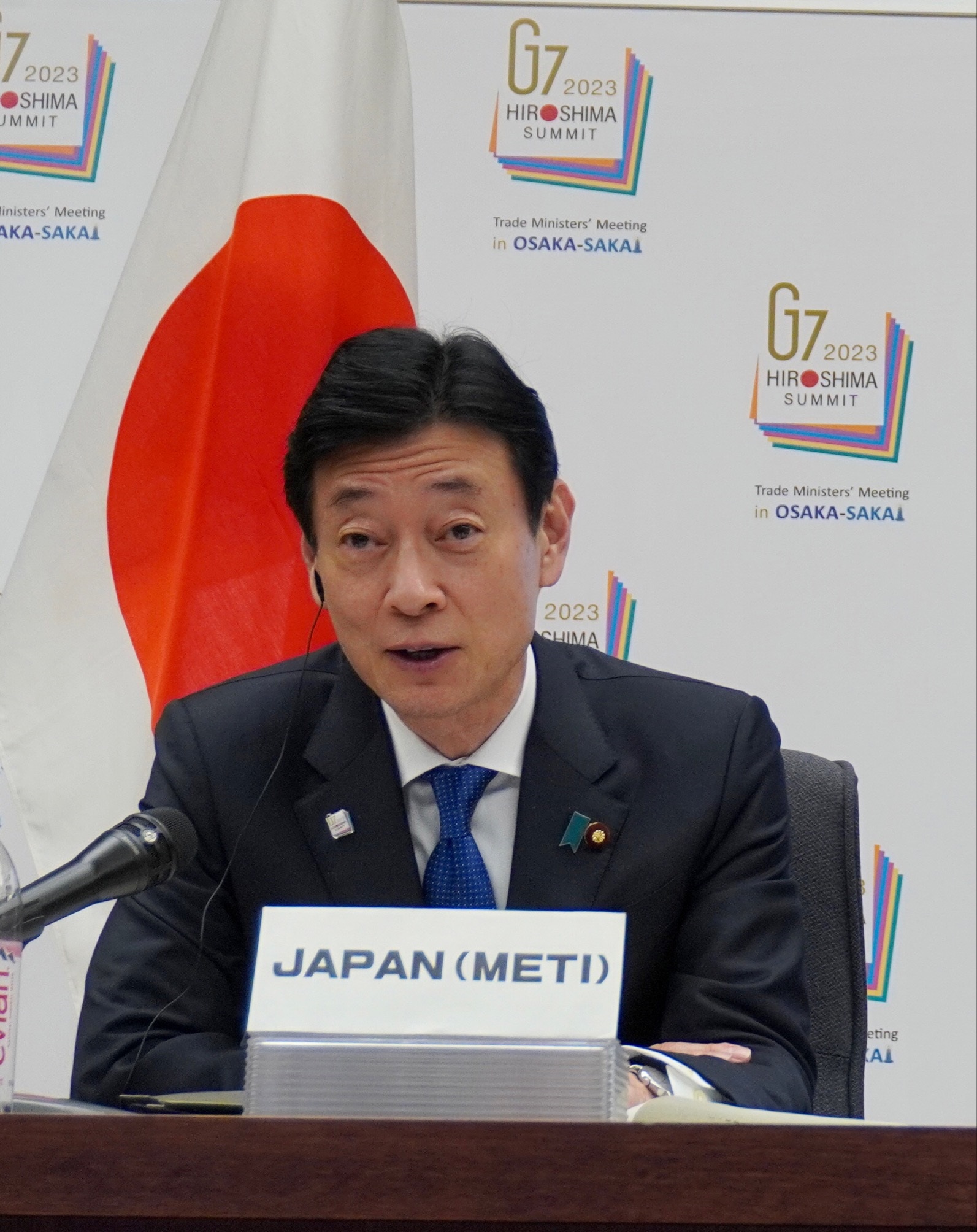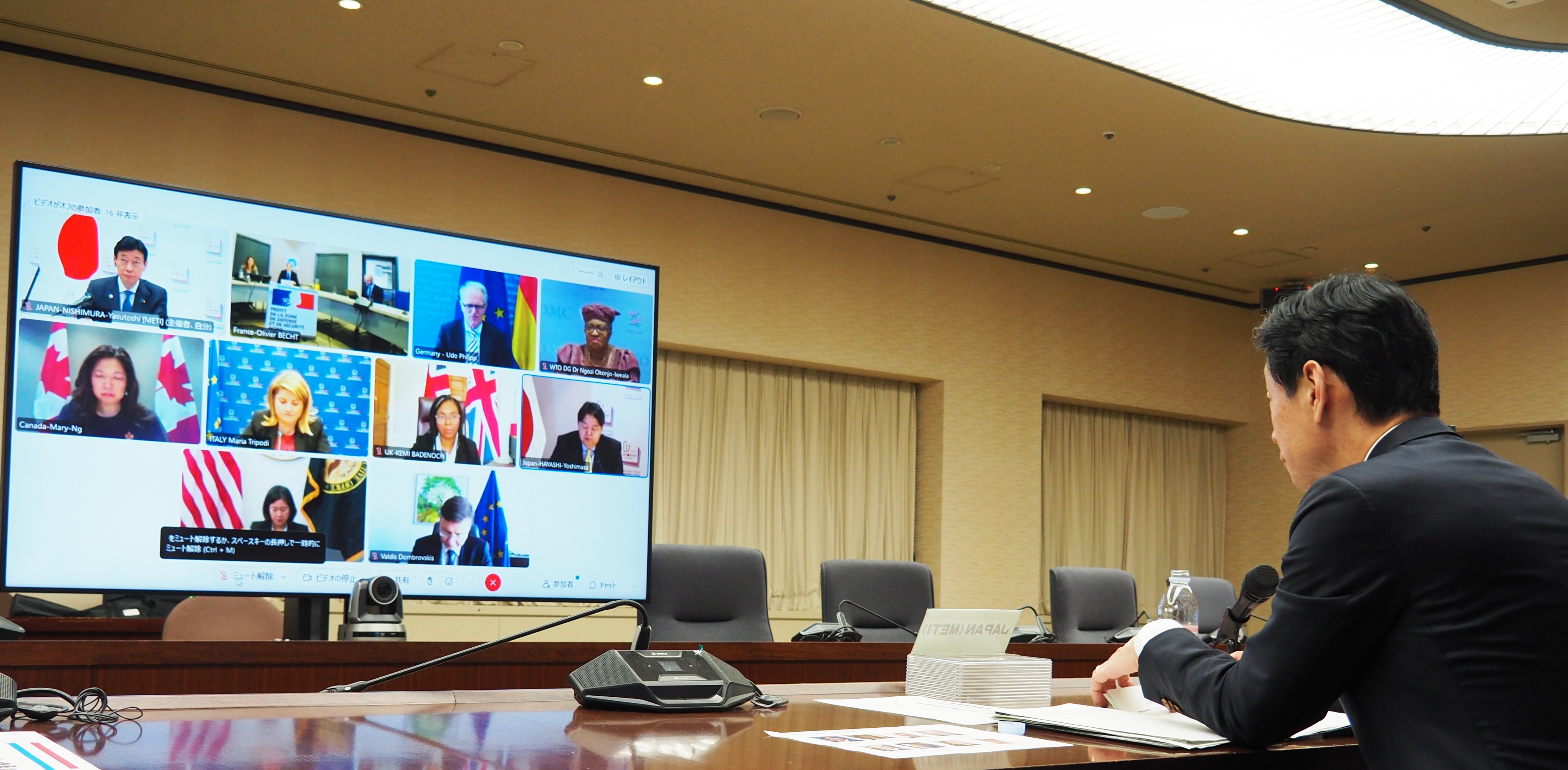- Home
- News Releases
- Back Issues
- April FY2023
- METI Minister Nishimura Holds 2023 G7 Trade Ministers’ Meeting
METI Minister Nishimura Holds 2023 G7 Trade Ministers’ Meeting
April 4, 2023
On April 4 (Tue.), 2023, Mr. Nishimura Yasutoshi, Minister of Economy, Trade and Industry, held a G7 Trade Ministers’ Meeting via video conference. Participating ministers discussed efforts towards maintaining and strengthening the free and fair trade system as well as enhancing economic security, and issued a G7 Trade Ministers' Statement.
1. Overview of the meeting
- On April 4 (Tue.), 2023, METI Minister Nishimura, together with Mr. Hayashi Yoshimasa, Minister for Foreign Affairs, held a G7 Trade Ministers’ Meeting via video conference.- At the meeting, participating G7 ministers actively discussed two topics, “Maintaining and strengthening a free and fair trade system, including WTO reform and the way forward to MC13”, and “Enhancing economic security – Cooperation among the G7 and beyond to address vulnerabilities along the global supply chain”, and concluded by issuing a G7 Trade Ministers' Statement.
- The results of today’s discussions will contribute to the G7 Hiroshima Summit in May, as well as the in-person G7 Trade Ministers’ Meeting in Osaka-Sakai to be held in October.
- Below are some key points raised by Minister Nishimura Yasutoshi during the meeting.
2. Comments by Minister Nishimura
(1) Session 1. Maintaining and strengthening a free and fair trade system, including WTO reform and the way forward to MC13
- Japan places great importance on global economic governance based on WTO rules. Japan’s announcement in March of its participation in the MPIA represents this commitment.- Japan has a strong interest in contemporary issues, such as digitalization and climate change, and has been discussing them in a variety of international fora. If the WTO can deliver results, we can make a greater impact on the global economy.
(WTO reform)
- The highest priority for Japan is the reform of the dispute settlement system. To avoid losing momentum, WTO members should agree on the direction of reform by MC13 at the latest.- On fisheries subsidies, Japan aims for the early entry into force of the Agreement on Fisheries Subsidies and is willing to cooperate in the next phase of negotiations.
- Japan aims to make the e-commerce moratorium permanent at MC13 to avoid the imposition of tariffs.
- Negotiations on e-commerce should be accelerated to ensure that the results of the negotiations keep up with the reality of global industry. As a co-chair of the negotiations, Japan aims for a highly ambitious outcome, and would like to share this goal with G7 members.
- In order to enhance efforts to secure a level playing field, Japan would like to accelerate discussions on rule-making, such as enhancing disciplines on industrial subsidies.
(Cooperation with developing countries)
- The G7 should send a strong message that the promotion of cross-border trade advances the digital and green transitions in developing countries and helps achieve their economic growth. Moreover, it is important to cooperate with developing countries to help them recognize the benefit of WTO negotiations and assist their proactive participation in the negotiations.- In the area of e-commerce negotiations, as a co-chair, Japan jointly launched a capacity building framework last June. Also, at the Trade and Environmental Sustainability Structured Discussions (TESSD), Japan has proposed that members should support the formulation of new standards and other measures to disseminate products and technologies that contribute to decarbonization in developing countries. In addition, on the Agreement on Fisheries Subsidies, Japan will also support developing countries through a newly established fund to encourage developing countries to implement the agreement appropriately.
(2) Session 2. Enhancing economic security – Cooperation among the G7 and beyond to address vulnerabilities along the global supply chain
- The concept of “Economic security” is not about building new walls or dividing the world into blocs. Instead, we should work towards further promoting trade and investment among trusted partners, by removing obstacles to economic activities, such as economic coercion, as well as enhancing supply chain resilience.(Enhancing supply chains)
- Since the pandemic, Japan has upheld four principles necessary for supply chains: transparency, diversification, safety and sustainability. Japan proposes to add the new element of “trustworthiness and reliability” to the supply chain principles. “Trustworthiness and reliability” covers the following four points: (1) Honoring international norms and obligations, (2) Not weaponizing economic interdependence for illegitimate political gains, (3) Committing to a free, fair and mutually beneficial economic and trade relationships, and (4) Refraining from taking measures that undermine these efforts.- Japan would like to deepen discussions to promote these new supply chain principles to like-minded countries outside the G7, including the Global South.
- In addition, concerning cooperation on specific goods, we would like to first further explore specific cooperation in the area of "critical mineral resources".
(Economic coercion)
- Japan would like to substantiate what the G7 can do to deter economic coercion and to mitigate damage caused. It is important to demonstrate that the G7 intends to work to jointly address such coercion.- On this issue, it is essential that governments and industries take a coordinated approach.



